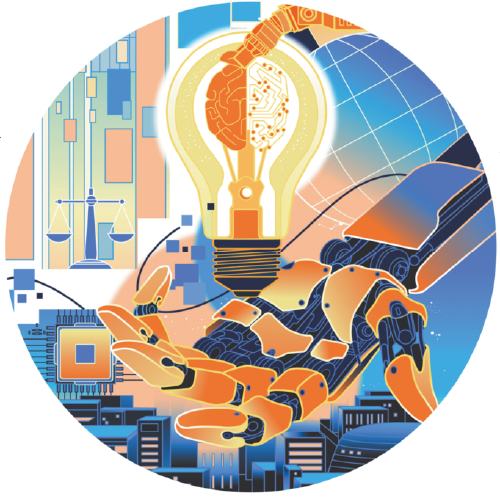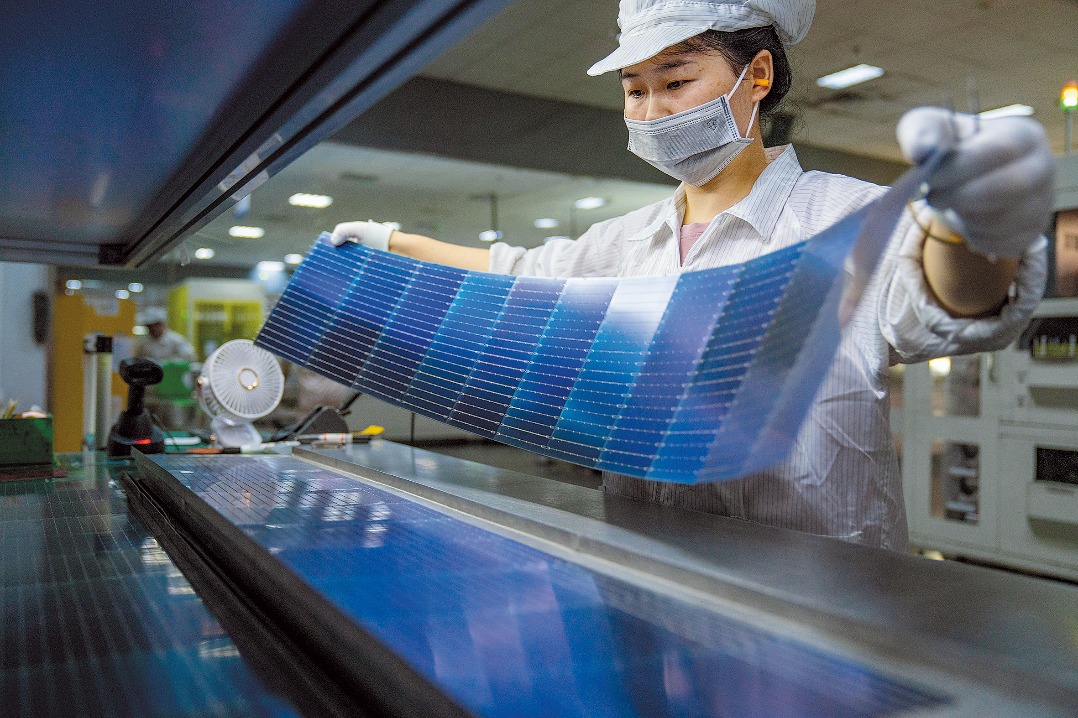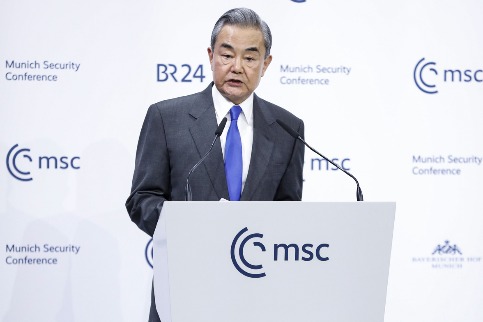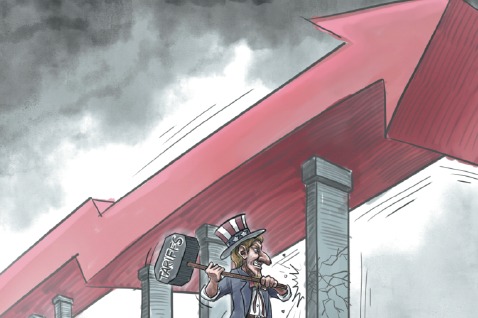Moral imperative
The Paris AI Summit highlighted the urgency of developing an inclusive AI governance framework that balances innovation with ethical oversight


The recent Artificial Intelligence Action Summit in Paris underscored the evolving dynamics of global AI governance, highlighting both the opportunities and challenges associated with the rapid advancement of AI technologies. At the summit, 61 countries endorsed the Summit Statement on "Inclusive and Sustainable Artificial Intelligence for People and the Planet", emphasizing the importance of ensuring that AI systems are open, inclusive, transparent, ethical, safe, secure and trustworthy.
However, the United States and the United Kingdom abstained from signing this declaration, citing concerns over potential overregulation and its possible impact on technological innovation. This divergence in approach underscores the ongoing debate between fostering innovation and ensuring ethical oversight of AI development.
The US has long dominated the AI landscape, with companies such as OpenAI, Google and Microsoft leading the research and development.
According to Stanford's AI Index Report 2023, the US alone accounted for approximately 50 percent of global AI investments, which totaled $94 billion in 2022. This concentration of AI resources and expertise in the US has led to limited access to cutting-edge technologies and a lack of representation in the global decision-making process for AI for many countries of the Global South.
But the countries of the Global South are now increasingly asserting their perspectives and priorities in AI governance discussions. Platforms such as the United Nations' Recommendation on the Ethics of Artificial Intelligence and its Global Dialogue on AI Governance offer valuable opportunities to amplify these voices. Countries such as Brazil, South Africa and Nigeria have begun to shape national AI strategies tailored to their unique political, economic, social and technological contexts, seeking to bridge the digital divide and promote inclusive growth.
In 2022, China accounted for 19 percent of the world's total AI research publications, second only to the US, and it has implemented policies that encourage AI innovation across industries. Through initiatives such as the Digital Silk Road, China is exporting AI technologies to other Global South countries, facilitating technological transfer and reducing dependency on Western technologies.
For example, in Africa, Chinese companies such as Huawei and ZTE have played a significant role in building digital infrastructure. In Zimbabwe, Huawei's Safe City project uses facial recognition technology to enhance public security, while in Kenya, the company's AI-driven traffic management systems have improved urban mobility. These projects underscore China's commitment to fostering AI development in the Global South, promoting South-South cooperation and advocating for a more balanced global governance framework that reflects diverse perspectives.
At the Paris AI Summit, Indian representatives emphasized the potential of AI to address pressing societal challenges, including healthcare, agriculture and climate change preparedness. India's National Strategy for AI, dubbed#AIforAll, aims to leverage AI for inclusive growth, particularly in rural and underserved communities.
However, the Global South faces significant challenges in navigating AI governance. One key challenge is the lack of digital infrastructure and capacity-building initiatives necessary to support AI research and development. According to the International Telecommunication Union, only 28 percent of households in Africa had internet access in 2022, compared to 91 percent in Europe. This digital divide limits the ability of countries in the Global South to participate in global AI innovation and governance discussions effectively. To address this challenge, investment in digital infrastructure, education and research capabilities is essential to empower these countries to actively participate in AI development, reducing reliance on external technologies.
Furthermore, ethical concerns regarding AI deployment in the Global South require urgent attention. In some instances, AI systems imported from the Global North have perpetuated biases and discrimination. A study by the Algorithmic Justice League found that facial recognition systems developed by Western companies exhibited higher error rates when identifying individuals with darker skin tones, leading to wrongful arrests in countries such as South Africa and Brazil. To counter such biases, the Global South must prioritize the development of inclusive regulatory frameworks that are sensitive to local cultural and socio-political contexts.
The Paris AI Summit highlighted the urgency of developing inclusive AI governance frameworks that balance innovation with ethical oversight. While the US and the UK expressed concerns over overregulation, their absence from the Paris AI Summit's declaration underscores the growing divide in global AI governance approaches. By collaborating through South-South partnerships and engaging actively in international governance platforms, the Global South can ensure that AI technologies are developed and deployed in ways that promote social equity and sustainable development.
The increased participation from other Global South nations demonstrates a growing momentum toward a more balanced global governance framework. By investing in capacity building, fostering South-South cooperation and advocating for ethical AI standards, the Global South is positioning itself as a key player in shaping the future of AI governance. As AI continues to transform societies worldwide, it is imperative that the Global South leverages this momentum to bridge technological divides, promote social justice and ensure that AI's benefits are equitably distributed across all nations.
By embracing these strategies, the Global South can transform AI from a potential source of disparity into a tool for inclusive and sustainable development, challenging the existing hegemony and ensuring that the voices of the marginalized are heard in global AI governance debates. The Paris AI Summit was not just about signing declarations but about redefining the global AI governance landscape, and the Global South must seize this moment to advocate for a more just and equitable digital future.
The author is executive director of South-South Dialogues, a Nairobi-based communications development think tank. The author contributed this article to China Watch, a think tank powered by China Daily.
The views do not necessarily reflect those of China Daily.
Contact the editor at editor@chinawatch.cn.

































